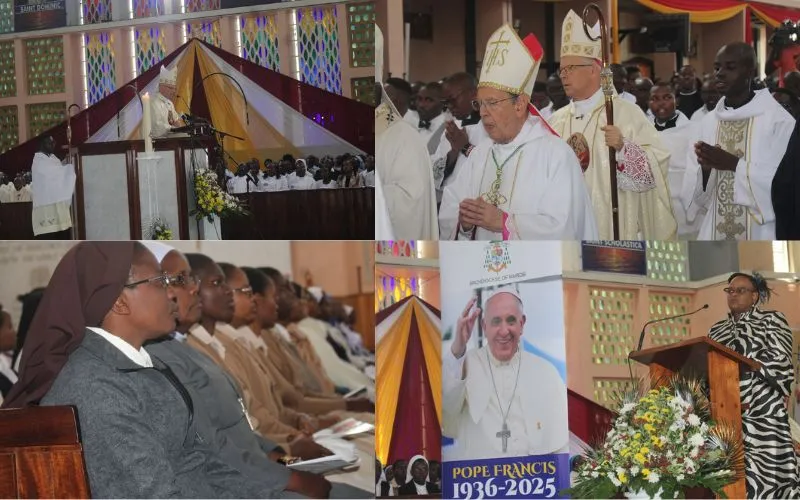This way, marriage is an intimate personal union of a husband and a wife, the member of the Clergy of Pretoria Archdiocese said, and explained, “St. Paul tells the Corinthians ‘Let each man have his own wife and let each woman have her own husband.’”
The setting of one husband and one wife, according to Fr. Mathebula, tends to promote gender equality in society and in marriages.
“The parties (in marriage) themselves equally and mutually surrender themselves through an act of will to one another whereas polyandry or polygamous setups seems to imply the superiority or domination of one party to the other,” he said.
“A marriage between a man and a woman also promotes fidelity,” the Priest said, and explained, “One becomes faithful to their commitment to loving and cherishing the other. They develop a partnership of a whole life; a partnership that should help them to grow.”
In a marriage driven by fidelity, each partner works as much as they can to contribute to the other’s growth. The partners, Fr. Mathebula said, also contribute to the salvation of each other’s souls.
(Story continues below)
Such a marriage, the Priest said, reflects the covenant that Christ made with the Church.
The September 9 session was also facilitated by Mrs. Lilly Mbatha who deals with marriage preparation programs in the Catholic Archdiocese of Johannesburg.
In her address, Mrs. Mbatha noted the importance of adequate preparation for people contemplating to get married, noting that rushing into marriage commitments ends in infidelity.
“Marriage is one of the most important decisions you'll ever make,” Mrs. Mbatha said, and added, “We have people who enter into marriage and somewhere in the middle, they find themselves having extramarital relationships. This is because they entered into a marriage without full understanding of what they are getting themselves into.”
“It is important for the Church to prepare our youngsters and to make them understand that before they say I do, to understand it is a long haul. That you can’t go back… Make it a point that you learn, you nourish your understanding and you get advice before you decide anything,” the long-time marriage expert said.
She emphasized the importance of communication in marriage, which she described as a lifeblood of any relationship.
“We need to listen more and speak less… We must listen using our hearts, listen with our mind, get all the connotations involved and get in touch with our feelings and be attentive to be able to read between the lines,” Mrs. Mbatha said, and added, “If communication is live in any marriage, if it is animated, then our marriages will work.”
Agnes Aineah is a Kenyan journalist with a background in digital and newspaper reporting. She holds a Master of Arts in Digital Journalism from the Aga Khan University, Graduate School of Media and Communications and a Bachelor's Degree in Linguistics, Media and Communications from Kenya's Moi University. Agnes currently serves as a journalist for ACI Africa.








